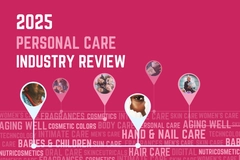CBD danger? France fights for EU ban while California and Thailand seek stiffer laws

France wants cannabidiol (CBD) cosmetics banned in the EU, citing potential “reproductive toxicity,” while regulatory rulings in California and draft legislation in Thailand are reshaping the cannabis landscape.
ECHA recently published France’s proposal to classify CBD as a carcinogenic, mutagenic or reprotoxic substance under harmonized classification and labeling.
The US state-enforced “emergency regulations” prohibit hemp products containing tetrahydrocannabinol (THC) but allow for the sale of hemp-derived CBD products without detectable levels of THC or other intoxicating cannabinoids.
Just two years after decriminalizing CBD, Thailand is ramping up rules over recreational cannabis use and licensing requirements.
In personal care, CBD is used as an antioxidant, anti-sebum agent, skin conditioner and skin protectant.
CBD control
France’s proposal entails banning CBD cosmetic use across the EU but that will depend on whether the Scientific Committee on Consumer Safety finds evidence that CBD and its cannabidioids harm health.
 CBD is used as an antioxidant, anti-sebum agent, skin conditioner and skin protectant.Although it is not regulated in the EU Cosmetics Regulation, the European Commission started last year to gather scientific evidence on CBD’s effects.
CBD is used as an antioxidant, anti-sebum agent, skin conditioner and skin protectant.Although it is not regulated in the EU Cosmetics Regulation, the European Commission started last year to gather scientific evidence on CBD’s effects.
California’s Governor Gavin Newsom introduced the regulations in an attempt to safeguard children and teens from the “dangerous” intoxicating effects of THC.
The California Department of Public Health (CDPH) says it is responding to increasing “health incidents” linked to intoxicating hemp. It cites studies showing such products have negative impacts on cognitive functions, memory and decision-making abilities in developing brains.
The CDPH proposed the laws and says retailers should not sell any industrial hemp food, beverage or dietary product. However, CBD and THC-combined products will remain available for purchase.
Bans outlined
The California regulations ban any detectable amount of THC or other intoxicating cannabinoids per serving, sales to people under 21 and limit servings to five per package.
They do not affect hemp-derived CBD products with no detectable THC or other intoxicating cannabinoids. Additionally, they have no effect on cannabis product sales. Cannabis products, including products purchased for medical use and products with CBD and THC, will remain for sale at cannabis dispensaries.
Pureis recently introduced its moisturizing and hydrating CBD Muscle and Joint Balm, designed to support recovery from physical activity or long periods of no movement when massaged into the skin.
Luxury THC skin care provider Galyna sells CBD-exclusive formulations in the US, including a THC:CBD formulation in select markets via in-state manufacturing partnerships. Its CEO and co-founder, Toby Ripsom, spoke to Personal Care Insights on how regulations affect hemp in personal care applications and what developments are being made in the industry.
 CBD cosmetics in Thailand are not affected.California became the first state to permit the use of cannabis for medical purposes when the Compassionate Use Act was passed by voters in 1996. In 2016, voters also approved the use of cannabis for recreational purposes.
CBD cosmetics in Thailand are not affected.California became the first state to permit the use of cannabis for medical purposes when the Compassionate Use Act was passed by voters in 1996. In 2016, voters also approved the use of cannabis for recreational purposes.
Thailand legislation
In Thailand, the proposed draft legislation seeks to encourage medical and health applications while cutting recreational use. It allows cannabis and hemp to be used medicinally, in herbal products and cosmetics.
The government does not classify cannabis and hemp under the Narcotics Code but is worried about public consumption and the impact on health, economy and society. However, it also acknowledges the plants’ medical and economic benefits.
The proposal would “establish measures to control, supervise and supervise the use of cannabis and hemp” while also promoting the plants by establishing a committee system.
The legislation outlines a range of punishments for those who cultivate and trade cannabis or hemp without a license, which include imprisonment and fines. It also restricts those under twenty and pregnant and breastfeeding women from consuming cannabis or hemp products.













